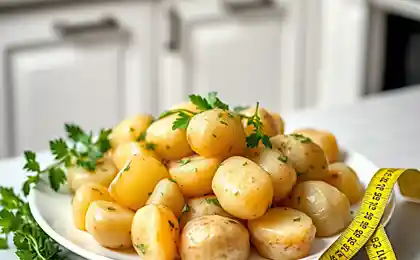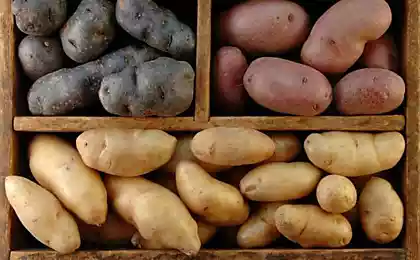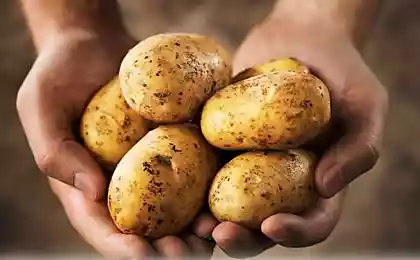185
Who should not eat potatoes every day?
“A table without potatoes is like a party without an accordion,” says a Russian proverb. No wonder this starchy vegetable is called the “second bread”. The average Russian eats about 120 kilograms of potatoes per year, and this figure tends to grow.

Most people in our country love potatoes and refuse to even admit that they can be harmful. However, the opinion of doctors and nutritionists about potatoes can not be called rosy.

What problems can threaten lovers of potato dishes, who should exclude it from the diet, and how to reduce the potential harm of the root crop to zero. Answers to these and other questions in our article.
In our diet, potatoes entered only at the end of the XIX century, although Peter I brought it from Holland two centuries earlier. In Maxim Gorky’s novel The Artamonovs Case, for example, one can read the following lines: “Father and potatoes did not agree when potatoes were forced to eat; they wanted to flog him, and he ran to hide, fell under the ice, drowned.”

And it's not fiction. More than half a million people took part in the potato riots from 1834 to 1844. Due to ignorance and lack of reliable information, peasants ate green tubers along with the skin, which led to poisoning and even death. After that, potatoes became known as the “devil’s apple” and the child of the devil.
At that time, people did not know that 200 grams of potatoes contain 14% of the daily value of vitamin C and half the daily value of potassium - a trace element vital to our vessels and bones. That one potato the size of a palm contains 50% of the daily value of vitamin B6, which is involved in hematopoiesis and is necessary for the health of the nervous system.
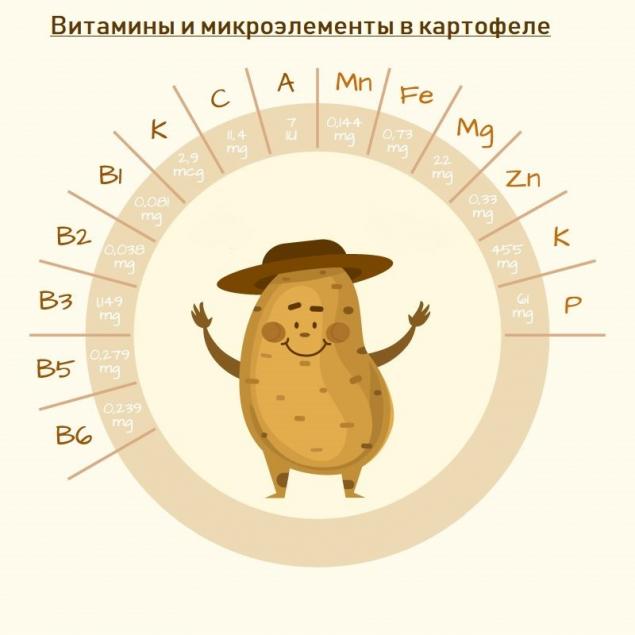
American scientists have estimated that from potato dishes, people get up to 25% of all polyphenols - the most useful antioxidants that protect the heart, blood vessels that prevent aging and the development of cancer. Today we learn more and more about the benefits of potato tubers, but, unfortunately, we cannot forget about a number of contraindications and hidden dangers for the human body.
Who can't eat potatoes?
How to cook and store potatoes to minimize harm
Summarizing, say that potatoes are undoubtedly rich in nutrients, which means that they can be part of a healthy diet if you approach their preparation wisely, monitor the size of portions and do not forget about contraindications.
How to cook a truly delicious fried potato with a golden crust, ruddy pieces, a tender and crumbly middle? Gathered together culinary tricks of experienced housewives that will make your potatoes truly perfect.
Everyone at least once in his life cooked mashed potatoes. It would seem that could be easier? But some housewives it turns out tender and without lumps, and others - worse than from the station dining room. "Site" It will tell you how to avoid the most common mistakes and still make the perfect mashed potatoes.
I was looking for a recipe for a delicious and simple potato casserole, tried a lot of recipes, but everything is wrong. And then one day at a party with a neighbor tried the perfect casserole. Very delicate, juicy and unusual potatoes in princely style will definitely become your favorite dish!

Most people in our country love potatoes and refuse to even admit that they can be harmful. However, the opinion of doctors and nutritionists about potatoes can not be called rosy.

What problems can threaten lovers of potato dishes, who should exclude it from the diet, and how to reduce the potential harm of the root crop to zero. Answers to these and other questions in our article.
In our diet, potatoes entered only at the end of the XIX century, although Peter I brought it from Holland two centuries earlier. In Maxim Gorky’s novel The Artamonovs Case, for example, one can read the following lines: “Father and potatoes did not agree when potatoes were forced to eat; they wanted to flog him, and he ran to hide, fell under the ice, drowned.”

And it's not fiction. More than half a million people took part in the potato riots from 1834 to 1844. Due to ignorance and lack of reliable information, peasants ate green tubers along with the skin, which led to poisoning and even death. After that, potatoes became known as the “devil’s apple” and the child of the devil.
At that time, people did not know that 200 grams of potatoes contain 14% of the daily value of vitamin C and half the daily value of potassium - a trace element vital to our vessels and bones. That one potato the size of a palm contains 50% of the daily value of vitamin B6, which is involved in hematopoiesis and is necessary for the health of the nervous system.

American scientists have estimated that from potato dishes, people get up to 25% of all polyphenols - the most useful antioxidants that protect the heart, blood vessels that prevent aging and the development of cancer. Today we learn more and more about the benefits of potato tubers, but, unfortunately, we cannot forget about a number of contraindications and hidden dangers for the human body.
Who can't eat potatoes?
- Proneness to diabetes
Harvard scientists for 20 years conducted a study, which involved about 85 thousand patients. As a result, it has been proven that too frequent consumption of potatoes contributes to the development of type 2 diabetes.
Those who consumed potatoes 2-4 times a week were diagnosed with diabetes 7% more often than those who ate it only once a week. And 3 weekly servings of French fries increased the likelihood of the disease by 19%. Due to fat, fries were the most harmful. - Hypertension
Another study found that women who ate 4-5 servings of baked or boiled potatoes per week had an 11 percent increased risk of hypertension compared to those who ate no more than one serving. The negative effect of French fries was even higher – 17%.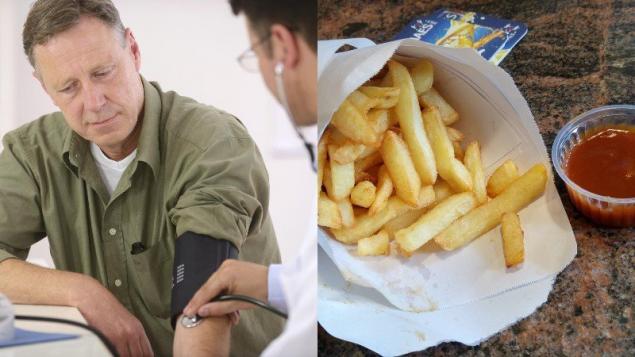
- Joint diseases
Some patients note that their joints get worse after potatoes, tomatoes, eggplant and all nightshade. The main reason for this reaction is the presence of a tropane alkaloid, to which many are very sensitive.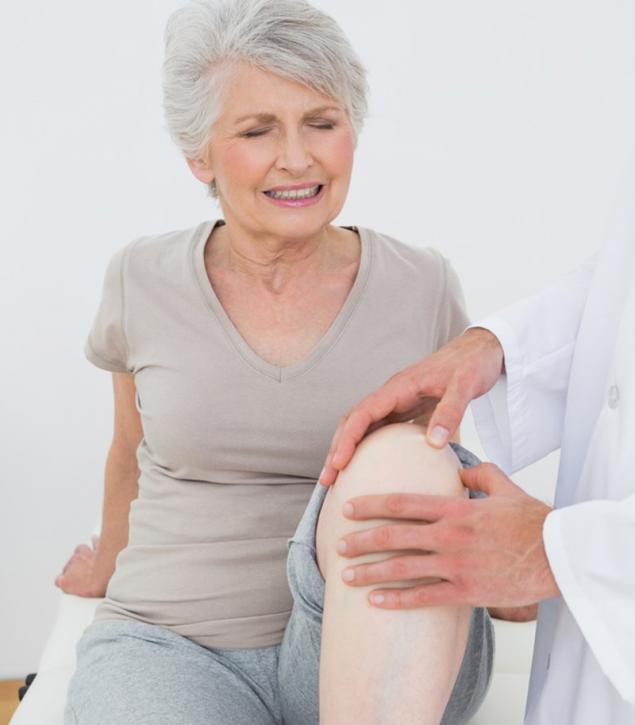
According to Norman Childers, founder of the Arthritis Research Foundation, “Based on a study of the effects of nightshade plants on more than 1,400 volunteers over 20 years, nightshade has been shown to cause arthritis in sensitive individuals.”
To identify the sensitivity of the body to nightshade, doctors advise their patients to conduct such an experiment: exclude all nightshade from the diet for a period of three months, and then gradually introduce them into one product. So, with the help of diet, you can track how arthritis responds to the appearance of potatoes and their relatives on your table. - Allergy
Potato allergies It happens quite rarely, most often children suffer from it. The symptoms are similar to a general food allergy. The most common manifestations are a rash that occurs immediately after eating the product, difficulty breathing and swelling of the mucous membrane of the mouth.
How to cook and store potatoes to minimize harm
- Eliminate old and sprouted fruits
Potatoes contain the toxic substance solanine, which protects tubers from pests. In places of its concentration, potatoes turn green. In humans, solanine can cause poisoning: headache and muscle spasms.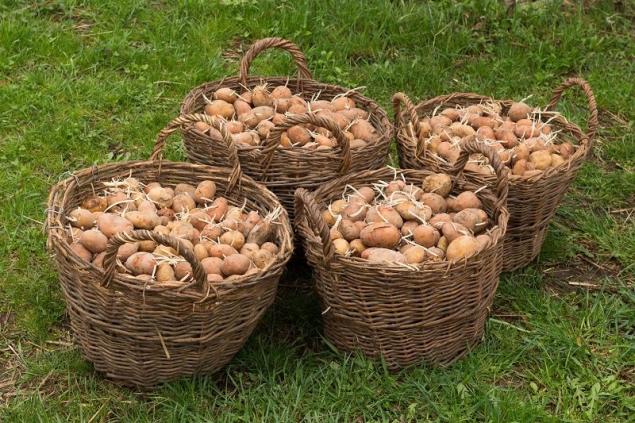
The concentration of solanine increases with prolonged storage and from the presence of potatoes in the sun. If the tubers are green, it is best to throw them away or, in extreme cases, carefully cut off the green areas. - Cook in peel
About 50% of all useful polyphenols of potatoes are contained in the skin and adjacent tissues. Therefore, the vegetable should be cleaned carefully, removing a thin layer of skin or generally cleaned with a brush and baked in a uniform.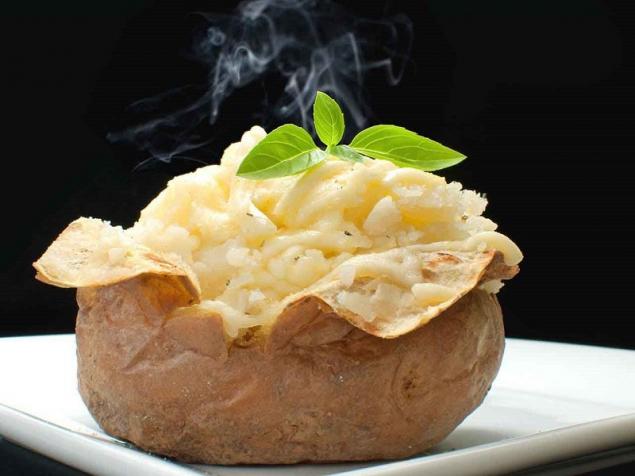
The exception is green or sprouted potatoes. Such specimens must be cleaned by cutting off the skin and a thick layer of adjacent tissues, so as not to get a large dose of solanine. - Choose varieties with less starch
Breeders are constantly working on the creation of less harmful varieties of potatoes with a reduced starch content and high - useful polyphenols. A vivid example of this is potatoes of purple hue. This color is provided by anthocyanins - these are one of the most powerful polyphenols.
- Properly cook
The glycemic index of potatoes (GI) varies significantly from dish to dish. So GI fries - 110, more than white buns. But GI mashed potatoes already 80, boiled potatoes - 70, and if it was cooked in a uniform - then all 65, like boiled beets and rye bread.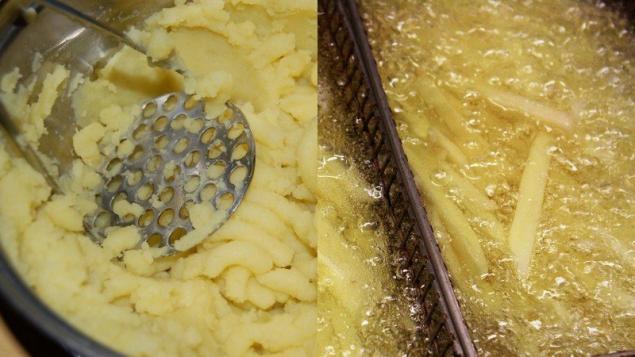
The method of preparation also depends on the percentage of stable (resistant) starch. Such starch reaches the large intestine almost undigested. Blood sugar rises more slowly and not as much, so dishes with resistant starch do not contribute so much to weight gain, improve insulin sensitivity, reduce cholesterol.
The least resistant starch is contained in puree - up to 3%. Potatoes baked in the oven contain up to 6%, and microwaved - 7%. - Refrigerate before use
The content of resistant starch in the finished dish can be increased by keeping it in the refrigerator. During the day it will be 1.5-4 times more than just cooked and hot. As we have written above, starch-resistant useful for digestion and figure.
- Don't fry.
As we wrote above, eating fried potatoes more than three times a week raises your risk of death from various diseases. Instead of frying, boil it, bake it in the peel in the oven or in the microwave.
If you still can not live without roasted potatoes in the pan, then first soak it for 40-50 minutes in water to get rid of excess starch.
Summarizing, say that potatoes are undoubtedly rich in nutrients, which means that they can be part of a healthy diet if you approach their preparation wisely, monitor the size of portions and do not forget about contraindications.
How to cook a truly delicious fried potato with a golden crust, ruddy pieces, a tender and crumbly middle? Gathered together culinary tricks of experienced housewives that will make your potatoes truly perfect.
Everyone at least once in his life cooked mashed potatoes. It would seem that could be easier? But some housewives it turns out tender and without lumps, and others - worse than from the station dining room. "Site" It will tell you how to avoid the most common mistakes and still make the perfect mashed potatoes.
I was looking for a recipe for a delicious and simple potato casserole, tried a lot of recipes, but everything is wrong. And then one day at a party with a neighbor tried the perfect casserole. Very delicate, juicy and unusual potatoes in princely style will definitely become your favorite dish!














